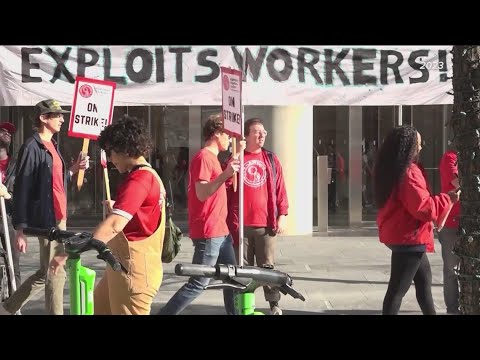A federal judge in Texas has halted a new rule from the National Labor Relations Board (NLRB) that aimed to simplify the unionization process for millions of workers in major corporations.
Set to take effect on Monday, the rule intended to redefine when two companies are considered “joint employers” during labour negotiations.
Under the existing 2020 NLRB rule, passed by a predominantly Republican board, companies like McDonald’s are not seen as joint employers of most workers directly employed by franchisees.
The new rule sought to broaden the definition, considering companies joint employers if they can control at least one employment condition, including wages, benefits, hours, scheduling, duties, work rules, and hiring.
The NLRB argued for the change, stating the current rule allows companies to evade their legal obligation to negotiate with workers.
Business groups, including the U.S. Chamber of Commerce, the American Hotel and Lodging Association, the International Franchise Association, and the National Retail Federation, filed a lawsuit in November against the NLRB, asserting the new rule would disrupt established precedent and make companies responsible for workers they don’t employ at unrelated workplaces.

The NLRB is reviewing the court’s decision and evaluating its next steps, according to a statement issued on Saturday.
Related Articles:
- New York Rep Hakeem Jeffries, 53, Points Finger at Republicans’ ‘Performative Politics’
- Polarizing Politics: Texas in the Spotlight
- Republican Senator Expresses Controversial Views on Potential Coup Opportunity
While expressing disappointment, Lauren McFerran, the NLRB’s chairman, emphasized that the court’s decision is not the final word on efforts to align the joint-employer standard with endorsed common law principles.

